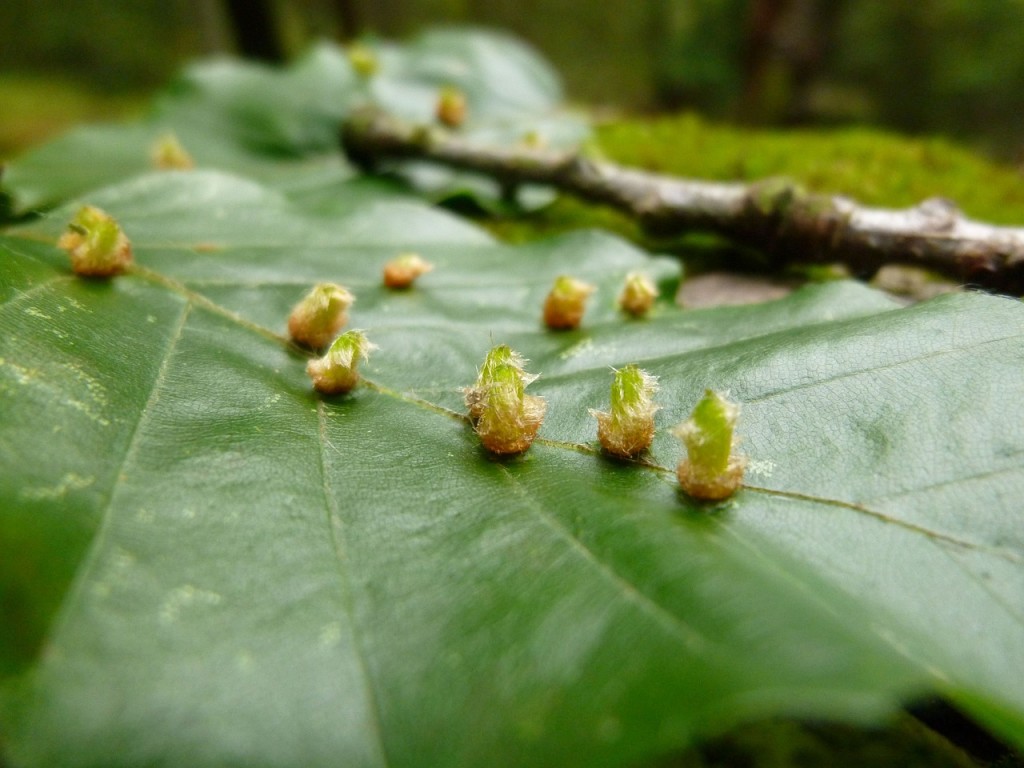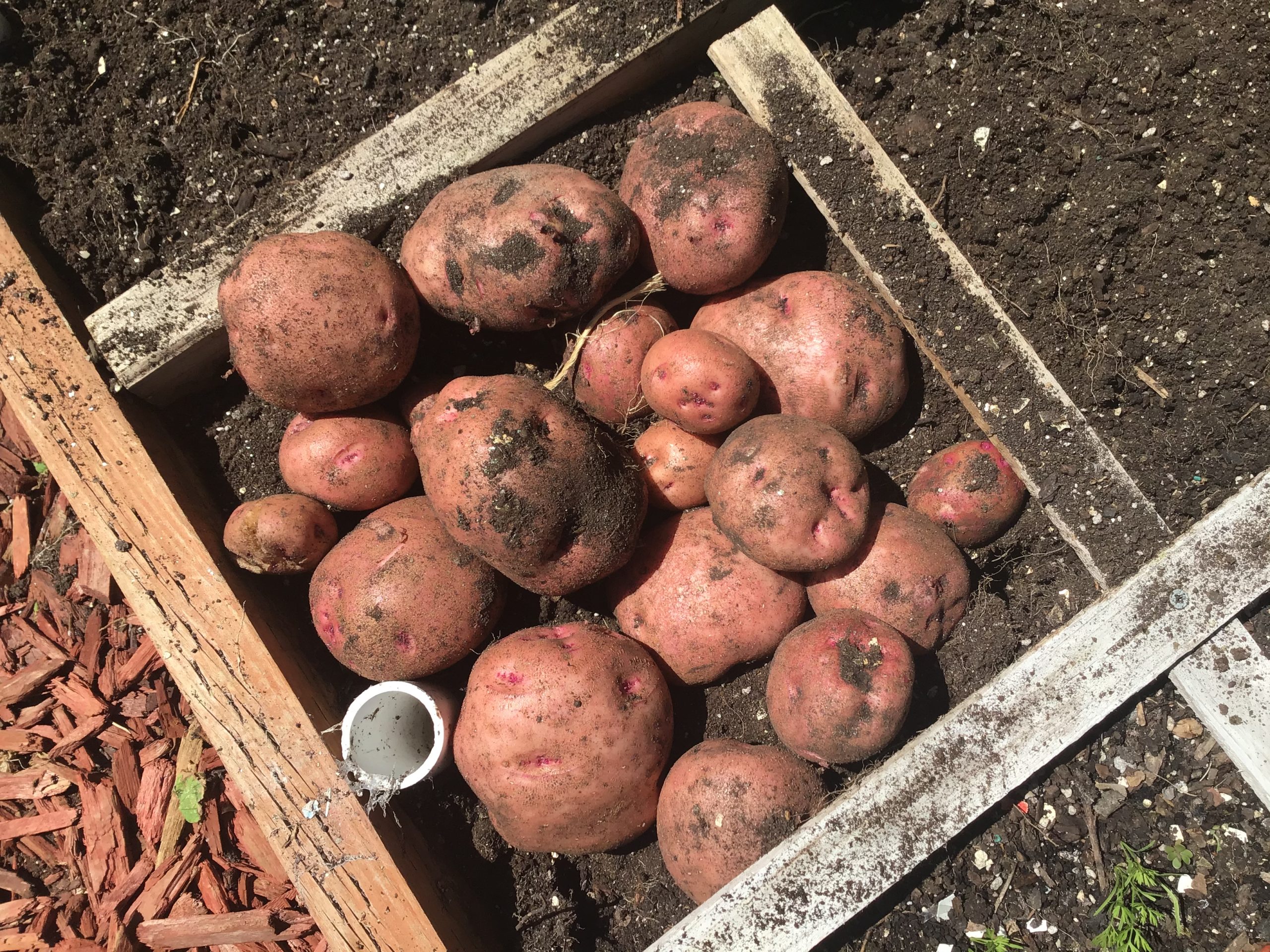 Are the pests in your garden driving you mad? Before you reach for the insecticide in a desperate bid for sanity, stop a moment and read my tips on getting rid of pests naturally, no harsh chemicals required. With these pest deterrent and control ideas, you should have a bad-bug-free garden in no time!
Are the pests in your garden driving you mad? Before you reach for the insecticide in a desperate bid for sanity, stop a moment and read my tips on getting rid of pests naturally, no harsh chemicals required. With these pest deterrent and control ideas, you should have a bad-bug-free garden in no time!
1. Use spices to deter ants
Prevent ants from building a nest around the root balls of your plants by sprinkling cayenne pepper or curry powder around the edge of your square foot plot. Apparently, the insects hate the stuff, and won’t cross a line of these spices.
2. Attract ladybugs
Our spotted friends are fantastic at keeping aphid populations down, so a good way to tackle these pests is to encourage ladybugs to enter your garden. Heather Rhodes over at Gardening Know How offers some great advice on attracting ladybugs to your yard.
“(In order to get) ladybugs to come to your garden (you need) to make sure they have enough bugs to eat. While it may seem counterproductive, leaving aphids and other pests alone will help with attracting ladybugs.
“It may be helpful to plant decoy plants that will attract and provide aphids while you keep your desired plants bug free until the ladybugs come to do it for you.”
Why not designate one of your square foot plots as a pest control station? You could use it to either sow plants that will attract aphids to encourage ladybugs; or, if your garden is more established, grow plants that will attract beneficial insects.
Though attracting pests may seem strange, it could help to create diversity in your garden, which is great for controlling all pest populations.
3. Keep mosquitoes at bay
Mosquitoes are an incredibly irritating pest, as instead of attacking our plants, we’re the ones on the menu! However, there are a few things you can do to try to keep your garden a mozzie-free zone:
• If you have bird baths or other water sources in your garden such as free standing water features, change the water in them twice a week, and ensure that any areas that collect water are drained regularly.
• Install a bat house in your yard – bats can each hundreds of mozzies in just one night! The Flatbush Gardener offers some fantastic tips on where to install your bat house.
• Add sage or rosemary to the coals of your barbeque next time you cook outside – the herbs will repel mosquitoes. It’s also a good idea to grow rosemary, lavender or basil in one of the plots of your garden, as this can help to deter mozzies even when you’re not cooking outside.
4. Dig a pond
“Ah, but you just told us to remove standing water from our yards to keep mosquitoes away!” I hear you. However, though ponds can potentially be attractive to mosquitoes, with a little planning and preparation, the mosquito population can be kept under control.
Darcy Logan over at Do It Yourself offers some great tips on keeping your pond mosquito-free. “Common goldfish, killifish, and guppies are three types of fish that are known to eat mosquito larvae and will get along well with other fish,” says Darcy, who adds: “Trim any vegetation that hangs over the edge of the pond that might provide shelter for mosquito larvae.”
Now that the mosquitoes are out of the way, you can get on with enjoying your pond and the pest control benefits it provides. Your pond could attract toads and frogs, which will do a sterling job of eating slugs and snails – pests which could decimate your plants, given half the chance.
A pond will also help to make your garden attractive to a larger range of wildlife, meaning that it will be more diverse; and with diversity comes better population control. The more diverse your garden is, the less you’ll have to worry about pests.
If that isn’t enough of an incentive for you, then this post on why a pond is a great addition to your property from the Swallow Aquatics blog may just convince you!
5. Scare the crows
If birds are becoming more of a pest than a pal, deterring them a little might be beneficial for your garden. Try hanging some brightly colored baubles on the plants that they’re attacking the most – unless you have the space to create a full on scarecrow, of course!
6. Crush eggshells to deter caterpillars
Once caterpillars become butterflies, they’re incredibly helpful and a fantastic friend to any gardener. But while they’re growing up, they’ll eat pretty much everything in sight. Keep caterpillars away from your beloved plants by surrounding the base with a ring of sharp crushed eggshells.
7. Use your leftover coffee in compost
The scent of coffee is apparently disgusting to many pests, including ants, mosquitoes, aphids and slugs. Mix the leftover grounds from your coffee maker in with your compost heap, or apply it directly to the top of your soil.
8. Deter deer
As beautiful as deer are, they can be a nightmare for your garden. There are lots of different methods to keep them at bay – try a few ways to see which works best for you:
• Next time you have a haircut, save the trimmings. Place the hair directly on your vegetable or flower plots; or put the hair into a stocking and hang it above your plants. The scent should keep deer away.
• Make a hot pepper spray. Mix a quart of water with a half cup of dried hot peppers, and bring to the boil in a saucepan. Drain the mixture and discard the peppers, then pour the solution in a spray bottle so that you can spray your plants with it.
• Place soap flakes around the edge of each plot, or hang a bar of fragrant soap above your plants.
9. Use the hose
Picking each and every bug from your plants could take all day, so if you want to get rid of pests in a hurry, switch your hose to a fine spray and use the water to knock the insects off the leaves.
For a more permanent solution, add a vegetable-based soap to water in a spray bottle and spray onto the bugs – it will dissolve their outer shell, and kill them. Use this carefully, though, to avoid killing the good guys!
10. Create a barrier
Using a cloche, or another type of cover that lets in sunlight, is a great way to protect plants from pests. There are covers available that also let water in; or you could opt for a cloche which works as a miniature greenhouse – particularly great for vegetables – and lift the barrier when you need to water your plants.
Conclusion
I hope that this guide has provided you with some ideas on how to get rid of pests without resorting to harsh chemicals. The fewer harsh chemicals you use, the better your garden will be able to eventually create its own mini ecosystem, which will mean that pests are kept under control without you needing to lift a finger.
